
ADVOCACY PROFILE
A well-functioning market economy needs educated consumers with the power to influence the market through their rational decisions when confronted with choice. Informed consumers are able to assert themselves in the marketplace, which in turn influences the behaviour of traders, pushing them to be voluntarily compliant with consumer legislation. Only through being informed can consumers gain the benefits of a well-functioning market economy. And in order to be informed, consumers must receive timely and accurate information. This information must be brought to consumers through as many mediums as possible to ensure maximum reach and effectiveness
MOBILE UNITS
Mobile units are cost effective means by which the Council can reach out to consumers who would otherwise not be able to access its services due to distance or transportation costs. The mobile units ensure that Council services are accessed directly thus increasing its reach and footprint. The Council also conducts market surveillance and trader visits in the respective areas where the information booths are set up.
SCHOOL VISITS
Consumer education should begin in early childhood to cultivate positive consumer attitudes and help youths develop independent thinking. This is especially important because more and more traders are targeting youths in advertising campaigns. Furthermore, many emerging consumer issues, such as data safety online, impacts young consumers who spend large amounts of time on social media and the internet. Educating school students on their rights and emerging consumer issues is important to ensure that unscrupulous traders do not swindle them. To do this, the Council actively seeks opportunities to visit schools and educate students on their rights and responsibilities.
COMMUNITY VISITS
Products and services in the modern world are constantly evolving to take into account the ever-growing needs of consumers. Unfortunately, the speed of this innovation can have a negative impact on consumer rights. This is because many products and services are in the hands of consumers before their consumer impacts are fully known. This lack of information on consumer rights with regards to new products is a cause for concern, even for the most informed urban consumers. Rural consumers are susceptible to greater risks simply because they may not have access to the most up-to-date information on consumer trends. Therefore, the Consumer Council of Fiji focuses on reaching as many villages and communities as possible in both rural and maritime areas. Community visits allow accessibility of Council Services and information in the most remote communities and ensures that they are not disadvantaged by distance.
WORKSHOPS
The Council conducts rigorous research on consumer policy issues to stay ahead of emerging trends in the marketplace. This research must then be communicated to stakeholders and consumers. Workshops give the Council an avenue to impart this information. Over the years Council has partnered with several organizations such as the Department of Youth and Sports, Ministry of Education, Fiji National University, Catholic Women’s League, the Fiji Disabled People’s Association etc to conduct workshops on various consumer topics and issues. The topics covered in these workshops have moved from the role of the Consumer Council, consumer rights and responsibilities, towards emerging problems that consumers face in their day to day living.
TALKBACK SHOWS
Talkback shows have also proven to be effective for the Council’s campaign on consumer rights, responsibilities and critical consumer issues. The Council has made arrangements with radio and television stations to ensure that it has got slots available to speak on topics which are in the interest of consumers. Talkback shows also all the Council to reach to hundreds and thousands of Fijians who can use this platform to directly communicate or raise any consumer related concerns.
SOCIAL MEDIA
Social media is continuously evolving and as such, the Council is evolving with it. Using platforms such as Facebook, Twitter and now Instagram, the Council has been able to reach consumers around the Country and overseas. This platform is used for disseminating consumer advisories and alerts. Since these platforms are interactive, it allows the Council to receive consumer complaints and provide timely responses to queries.
The Council also has an in-house production team which looks after audio/video production as well as basic graphics. The team also creates relevant content to be placed in various communications materials in English, Hindi and iTaukei in order to suit the language needs of consumers.
Contact the Council if you would like us to visit your community, village or school to create awareness, to set up a mobile unit or to conduct workshops. You may reach out to our Campaigns team at 9716263.
-
Control Consumption (Ctrl C) ProjectMay 31, 2022
Project Control Consumption is an advocacy project a Diabetes is extremely common in Fiji with 1 in every 3 Fijians being diagnosed with diabetes; that is 30% of the population. Diabetes related deaths is also the biggest killer in Fiji – making Fiji a world leader in diabetes. Project Control Consumption stresses more prominently the […]
-
Pacific Insurance and Climate Adaptation Programme (PICAP) ProjectMay 31, 2022
Fiji is vulnerable to naturally induced perils like cyclones, tsunamis, floods, droughts etc., at present there are no insurance solutions for individuals, communities, small businesses, cooperatives and other livelihood groups. Through the United Nations Capital Development Funds’, Pacific Insurance and Climate Adaptation Programme (PICAP), innovative parametric insurance products are being developed for pilot testing among […]
-
World Consumer Rights Day 2023March 17, 2023
World Consumer Rights Day (WCRD), observed annually on March 15 aims to increase public awareness on consumer rights, protection, and empowerment worldwide. Celebrating the day is a chance to demand that the rights of all consumers are respected and protected. The build up to this year’s WCRD had already started in 2022. The world leaders […]
-
WORLD CONSUMER RIGHTS DAYMay 31, 2022
World Consumer Rights Day every year on March 15, to raise global awareness about consumer rights and needs. Launched in 1983, World Consumer Rights Day is coordinated by Consumers International and recognized worldwide. Celebrating the day is a chance to demand that the rights of all consumers are respected and protected. It is a global […]
-
WCRD 2022May 31, 2022
This year, the Membership of Consumers International – 200 consumer groups in 100 countries – selected Fair Digital Finance as the global theme. By 2024, digital banking consumers are expected to exceed 3.6 billion. In the developing world, the proportion of account owners sending and receiving payments digitally has grown from 57% in 2014 to 70% in […]
COMMUNITY CONSUMER ADVISORY GROUP
In a joint effort to empower and protect consumers, especially the disadvantaged and marginalised ones, the Consumer Council of Fiji, with the support of the European Union, launched the Community Consumer Advisory Group (CCAG) on the 25th of June 2014 in Suva.
The group, which has a voluntary membership representing rural, remote areas of the country, will act as the Council’s eyes, ears and voice on the ground.
The Council has identified seven representatives from Savusavu, Taveuni, Nasinu, Lautoka, Rakiraki, Labasa and Levuka to be part of the CCAG.
Expression of interest
If you would like to be a part of our tireless group of volunteers as the Council’s eyes and ears within your community, you can express your interest to the email eo@consumersfiji.org
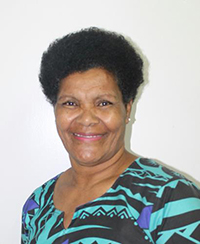
Ms. Vani Vula
CCAG Representative - Lautoka
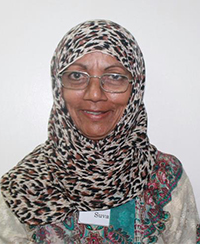
Ms. Hamida Khan
CCAG Representative - Nasinu
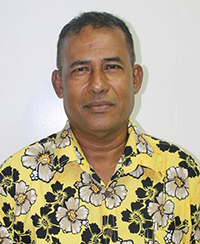
Mr. Shri Krishna
CCAG Representative - Rakiraki

Mr. John Leopold Apanna
CCAG Representative - Taveuni
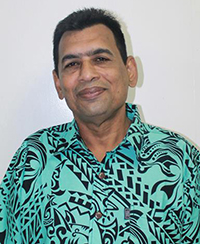
Mr. Ashok Kumar
CCAG Representative - Savusavu
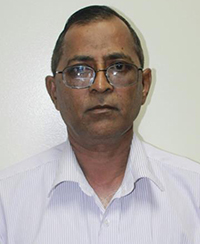
Mr. Mahendra Prasad
CCAG Representative – Labasa

Mr Mateo Vianny
CCAG Representative - Levuka
